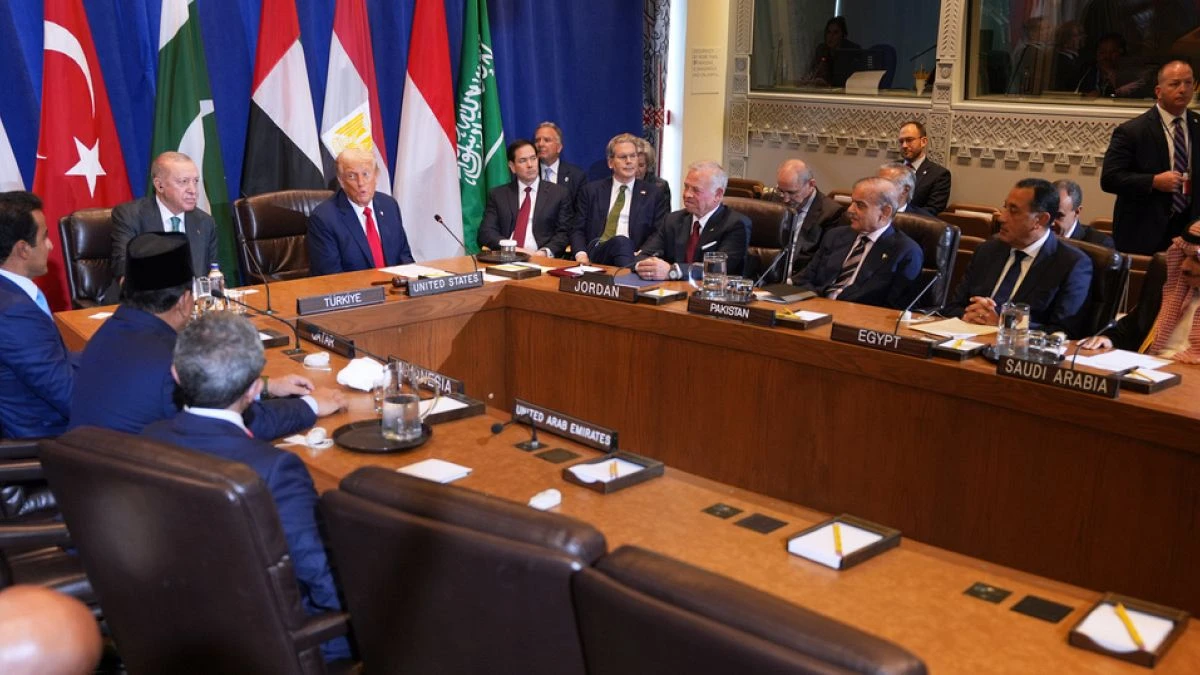From Morsi to Sharia: When Gulf Realism Surpasses the Turkish Gamble
This is an AI-generated English translation. The original text is in Arabic.
Turkey has been betting on the support of the Islamic movement in the region since the outbreak of the "Arab Spring," while the Gulf has been concerned about the dangers of this movement coming to power. Both sides base their bets on an awareness of the complex regional reality, whether at the sectarian and ethnic levels or in relation to sensitive issues such as the Arab-Israeli conflict and the growing Iranian presence in the region.
For the second time, it seems that Turkey has failed or is on the verge of failing in its attempts to impose certain regimes in Arab countries, while the Gulf approach shows a clear success in standing against the political projects adopted by Turkey.
The Egyptian Experience: The First Fall of Ankara's Bet
After the bitter and failed experience of supporting the late President Mohamed Morsi in Egypt, on whom Ankara pinned its hopes to take control, the Gulf's position was completely different. The Gulf did not merely bet on Morsi's failure but actively contributed to his downfall, supported by a deeper understanding of the internal dynamics in Egypt and the regional risks.
In contrast, Turkish President Recep Tayyip ErdoÄan was among the first to congratulate the late Morsi, and Ankara sought by all means to support that experience and try to make it successful in any way, especially through the "100 Days" plan that Morsi committed to at the beginning of his rule. However, this effort was not commensurate with the counter-plan implemented by the Gulf regimes.
Turkish support for political Islam continued even after Morsi's fall, as Turkey became an important refuge for many leaders of the movement fleeing the repression of security forces in Egypt after the military coup led by Abdel Fattah el-Sisi, which was clearly supported by Gulf countries and approved by Israel, the country that had the most influence in convincing the West not to reject this coup.
From Cairo to Damascus: Will the Scenario Repeat?
However, this Gulf support for Morsi's ousting was not only rooted in ideological hostility towards political Islam but also expressed a precise understanding of the nature of the region and its balances, and the implications of ideologically driven forces coming to power. This lesson was not understood by Turkey at the time, and it seems that it is trying to avoid it in the Syrian experience with Ahmad al-Shara.
Since mid-December 2024, after Ahmad al-Shara came to power in Syria, clearly and explicitly supported by Turkey, he quickly moved to reassure Israel that he does not seek escalation, announcing his commitment to previously signed agreements. He then turned to reassure the Gulf and Europe, confirming that his new regime, despite its jihadist background, would not be a source of crises in the region, nor a nucleus for sowing discord in neighboring countries. This was not merely a maneuver but an attempt to stabilize his rule and thwart any new Gulf attempts to overthrow him as an Islamic regime.
The Gulf Extends Its Hand... Cautiously
With al-Shara's rise to power, both the Gulf and the West received their first messages with a mix of caution and acceptance. For the first time, the Gulf halted its support for its forces in Syria, which had entered Damascus before al-Shara's forces, represented by Ahmad al-Awda, the Emirati arm in the Syrian file. Gulf countries also implicitly supported Turkey's choice of al-Shara, given his successful management of previous Syrian areas like Idlib and his strong ties to Turkey, which appeared to be the main guarantor of this new regime in front of all surrounding regimes. The Gulf's urgent desire to stop the fighting in the Middle East to achieve a calm Middle East by 2030 to realize Gulf visions in the region contributed in some way to the Gulf's acceptance of the new guest and its cautious welcome.
It seemed that the Gulf was open to giving this regime a chance, as Saudi Crown Prince Mohammed bin Salman played an important role in convincing the West to lift sanctions on the new regime and arranging an official meeting between Ahmad al-Shara and U.S. President Trump. These developments suggested that the new Syrian regime, despite its Turkish guardianship, had become regionally and internationally acceptable. However, these are cautious steps, and the Gulf would not hesitate to overturn them as soon as it feels they are unproductive and that the new Syrian regime will not align with the Arab and regional vision for the area.
Gulf Concerns: Iran First
Gulf leaders recognize that the region suffers from a clear military weakness in their armiesâwhether intentionally or notâand that Israeli infiltration in those regimes is widespread and evident, along with the abundance of collaborators, in addition to the chronic tension with Iran and its expansionist ambitions in the Arab region. Therefore, the Gulf saw that the arrival of Islamic forces to power would inevitably lead to problems with Israel, a state that represents a fundamental strategic weight in the regional balance of the West and serves as a safe haven for those regimes due to its strong and multifaceted relationships with America, and the need for these regimes for American support in facing the Iranian threat.
Arab Regimes and the Palestinian Cause: A Path of Decline
This Gulf vision is based on a long history of Arab failure in confronting the Israeli project since 1948, whether through direct wars or by supporting resistance from Arab territories, experiences that all ended in catastrophic losses, until Arab regimes reached the point of fighting the resistance itself within the occupied territories.
Meanwhile, the Turkish vision is based on achieving the strategic interests of the Turkish state and creating the largest number of enemies surrounding Israel to keep Israel and the region preoccupied with each other, allowing Turkey to politically implement its agenda, perhaps aimed at rebuilding a new Ottoman Empire but with a modern system through loyal rulers to form an influential Turkish-Arab alliance in the region with a regional and international role.
If He Succeeds, Itâs Ours... If He Fails, Itâs His Own Fault
The Muslim Brotherhood and the Islamic movement in Egypt paid a heavy and severe price when they became involved in leading the country in a difficult situation following the euphoria of the Egyptian revolution and the fall of Mubarak's regime. However, on the other hand, they were pushed into this dilemmaâgovernanceâwhere revolutionary forces at the time did not agree on a clear roadmap and each force tried to implement its own project without all of them coming together on a consensus project to manage the phase. The Gulf, the old regime in Egypt, and the army exploited this situation, and military leaders contributed to fueling that Egyptian revolutionary conflict through alliances with the Islamic movement at times and with the liberal or leftist movement at other times, forcing the Islamic movement to present a presidential candidate, and the choice fell on Morsi after the rejection of Khairat al-Shater's candidacy, who was Turkey's preferred choice.
Today, the scene seems similar in Syria, where the Gulf accepted al-Shara's rise to power through a consensus with Turkey, even though, as mentioned, it was the first to enter its forces into Damascus before al-Shara's forces arrived, appearing as if it were a new entrapment for Turkey and al-Shara by handing over power to an Islamic movement under unfavorable conditions that would make its overthrow after a while an easy and internationally demanded matter, as happened in Egypt.
Exposing the Fragility of the New Regime
In recent months, the features of the failure of this al-Shara project have begun to emerge, especially after the battles in the coast and Sweida, as it became clear that the new regime is incapable of managing its affairs effectively, suffering from severe confusion in its military decisions and fragmentation in its combat units. At the same time, there was a significant weakness in its political experience, as it was manipulated by Israel and the American envoy, who deceived it into believing that the path was open for it to extend its control.
Al-Shara Between a Jihadist Past and a Turbulent Present
Moreover, al-Shara's regime in Syria is shackled by its past, from which it tries to distance itself, showing all signs of abandoning jihadist Islamic thought, making it incapable of making pivotal and strong decisions in situations that require boldness. The continuous accusations and threatening and anxious looks from Western countries and Israel, along with the threat of jihadist rhetoric whenever it tries to make any significant decision, all make this new regime merely a puppet in the hands of the regional powers controlling the area.
The Sweida: The Blow that Exposed the Regime
With al-Shara's first attempt to expand into Sweida, the Israeli strikes were painful, accompanied by continuous threats, resulting in successive withdrawals of his forces, and even his request for the Arab tribes, which had declared mobilization towards Sweida after the massacres committed by some Druze militias led by Hikmat al-Hajri against the Bedouins in the area, to withdraw as well, revealing the fragility of the new regime.
When Pragmatism Triumphs Over Ideology
In conclusion, the Turkish vision, despite its ideological nature, failed to read the complexities of the Arab scene, leading it to losing bets in both Egypt and Syria. In contrast, the Gulf approach has proven, as it is said, to be the most consistent with the geopolitical reality of the region. This pragmatism has enabled it to effectively manage regional balances and avoid the chaos unleashed by the Arab revolutions, leading to the stifling of the Turkish-backed political Islamic project.



.webp)




